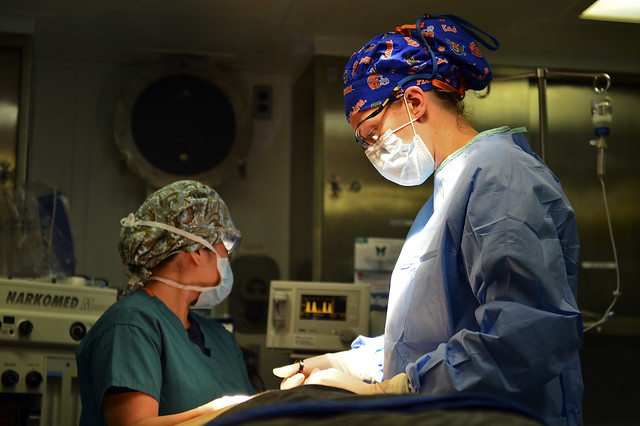Do you need oral surgery? You have to prepare yourself before undergoing any oral surgery procedure to avoid complications. By preparing yourself, you can get the advantage of a speedy recovery. Oral surgeries involve a local or general anesthetic. These outpatient surgeries require you to consult top oral surgeons such as a teeth removal doctor in Dallas – Fort Worth. Before surgery, you have to make several preparations. Strictly following post-operative guidelines will help you avoid any post surgical complications and decrease the chances of infection.
Discuss with Your Dental Doctor
People often ignore the importance of meeting an oral surgeon before surgery. This meeting is necessary to understand the dental procedure. Carefully listen to his/her instructions about recovery time, anesthesia, and operation. You should discuss any undergoing medical procedure or a current health condition with your surgeon. He/she should know these details and will make several decisions based on your medical condition, such as medicine, anesthesia, etc.
Feel free to ask about the type of anesthesia the oral surgeon is going to use. You can learn more about the anesthesia options over at the differences between anesthesia and sedation page. Ask about the possible effects on your body and mind. Before your oral surgery, you should consider having an insurance plan to cover the procedure to avoid possible unexpected costs.

Arrange Post-Operative Care and Transportation
You can’t underrate the impact of oral surgeries. Try to arrange to have a family member or friend accompany you to the clinic. They will drop you home after your surgery because doctors may not allow you to drive your car. Remember, anesthesia can affect your reflexes. In this situation, you are not steady at the wheels.
If you want to take a taxi service, you should wait to order a taxi until your surgeon allows you to leave. A person living alone can ask a friend to stay with him/her for a night. Moreover, if you are living with children, arrange a reliable childcare or order food from a restaurant.
Understand the Rules for Smoking, Drinking and Eating
Sometimes a surgeon may ask you to follow some pre-operative instructions because he is using a general or IV (intravenous) anesthetic. You may have to stop drinking (even water) and eating at least 8 to 12 hours before oral surgery. Make sure to floss and brush thoroughly before leaving your house for operation. You can’t smoke for at least 12 hours before surgery and 24 hours after surgery.
Dress for Oral Surgery
Practically select appropriate clothes to dress in for your operation, such as a comfortable, loose-fitting and short-sleeved clothing. This is essential if you having an IV drip. Doctors will try to avoid staining your garments, but try to wear casual clothes.
Avoid wearing jewelry because they will ask you to remove it before procedures. Moreover, don’t wear contact lenses because your eyes will remain shut for a long duration. You can’t wear lipstick or makeup, but bring a lip balm to apply on chapped lips after surgery if you like. Also avoid body sprays, colognes or perfumes. If you have long hair you should pin or tie it.
Post-Operative Diet
You have to pre-plan soft foods that need little or no chewing. Avoid acidic or spicy foods that can irritate your gums. Protein drinks can provide nutrition to your teeth for early recovery. Oatmeal and quick-cook meals can be a great choice after oral surgery. Some ideas for possible foods to eat are on the what to eat after wisdom teeth removal page.
After tooth extraction, don’t use a straw for drinking. Sucking on straws may increase the chances of dry socket (a painful condition). As a result, you will need an appointment from dentists for extra treatment. Dry socket is common to anyone, but its chances are high in smokers. Avoid the use of carbonated beverages after oral surgery. You can speed up recovery by following the instructions of your surgeon.
Ice Pack Swelling
After dental surgery, facial swelling is unavoidable. You can deal with it by holding frozen veggies or an ice pack to swollen areas with intervals of 20 minutes. If you are experiencing pain on the third day of surgery, infection is a possibility and you should immediately visit the oral surgeon for treatment. He/she may prescribe an antibiotic to treat any infection. You should complete any course of antibiotic as prescribed.
Conditions to Cancel a Surgery
A runny or sneezing nose can make it challenging to perform surgical procedures. With symptoms of a cold, you should cancel your operation to avoid the risk of infections. Allergies can be a concern if you can’t breathe easily. If you will need an oral antihistamine before surgery, inform your surgeon about it.
If you have symptoms of flu, such as body or muscle aches, fever and sore throat, you should immediately cancel your appointment. If you can’t breathe properly or are coughing consistently, the oral surgeon can’t perform surgery.
By following the above suggestions and taking your oral surgeon’s post-operative instructions seriously it is likely you will make a quick recovery from any oral surgery.
